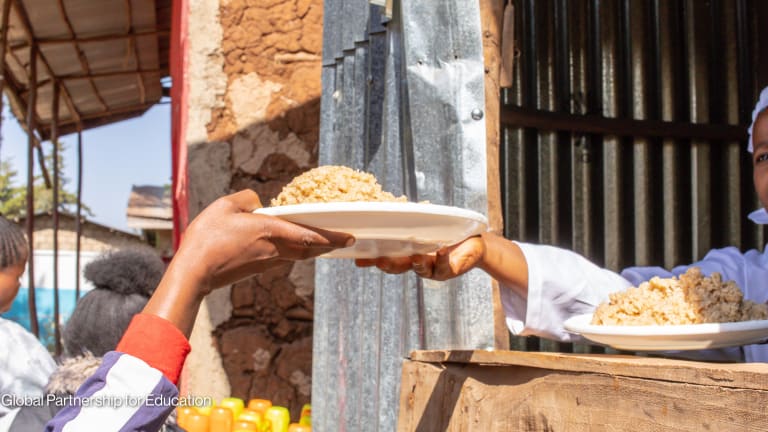
A healthy “blue economy” is critical for Pacific Island communities, which rely on ocean resources for everything from food security to jobs and economic growth.
While aquaculture — the farming of fish and aquatic plants — is the fastest-growing food production sector globally, supplying nearly half of the seafood consumed worldwide, it remains underdeveloped in many Pacific Island countries due to socioeconomic barriers and the detrimental effects of climate change.
“Climate change is a big challenge because it affects not only the productivity but also the sustainability of the system,” Dr. Reynaldo V. Ebora, the executive director of the Department of Science and Technology at the Philippine Council for Agriculture, Aquatic and Natural Resources Research and Development, or DOST-PCAARRD, told Devex. “There are some ecosystems that used to be productive, but because of climate change, productivity has declined.”
Risk factors such as disease and salt intrusion from rising sea levels affect farmed fish populations in small island communities, Ebora said, illustrating the need to “develop several adaptation mechanisms in order to adapt to the change in the environment due to climate change.”
With aquaculture expected to grow over 20% globally by 2030, centers such as DOST-PCAARRD are at the forefront of research, capacity building, and knowledge sharing efforts to help shape sustainable aquaculture development. Supporting Pacific Island communities to develop science-driven and adaptive strategies is critical for boosting farmed-fish production and improving fish strains that can tolerate changing climates and the threats they pose.
“It's very important to take a look at aquaculture and fisheries because you might have a limitation in food production in land-based products,” Ebora said. “In aquaculture, the potential is large for archipelagic countries. For example, the Philippines can have inland aquatic resources and, at the same time, marine aquatic resources. By tapping the resources available in this particular ecosystem, you might be able to produce enough food for the population.”
A promising blueprint for decision-makers to follow may lie in the Genetically Improved Farmed Tilapia, or GIFT, project — an initiative aimed at addressing low productivity in tilapia farms, inadequate quality supply of juveniles, and declining fish performance for what’s now the fourth most farmed fish in the world.
Over the course of nearly 30 years, CGIAR and its partners have successfully developed a strain of Nile tilapia suitable for both small-scale farmers and commercial purposes, which grows faster and more efficiently than previous strains.
Pioneering a systematic breeding method, GIFT drew from established selective breeding practices for other types of fish. An improved tilapia strain was established in 1997 that grew up to 85% faster compared to the start of the breeding program while improvements since then have resulted in a more resilient strain that can withstand climate change and other environmental stressors. Today, GIFT stock makes up more than half of the world’s tilapia production.
The initiative has also yielded economic returns. According to the Asian Development Bank, or ADB, the economic internal rate of return on investments in implementing GIFT was over 70% from 1988 to 2010. Income also improved for tilapia hatchery operators in the Philippines and Thailand from 2001 to 2003, according to the report, along with a significant boost in employment opportunities for tilapia farmers.
Breeding methods developed for GIFT have already been adopted in other regions, including Egypt, Ghana, and Malawi, for tilapia species, as well as in different types of fish, such as the silver barb, in Bangladesh and Vietnam.
ADB also found that GIFT’s ability to facilitate the expansion of public-private partnerships in areas such as seed production and distribution as well as financing for farm operations can serve as a lesson for scaling up similar scientific breakthroughs. This includes making technology and research more accessible to local communities and decision-makers.
“In some cases, you have very effective research results,” Ebora said, “but if it's not translated into a form that can be transferred to people, and, for example, active collaboration and participation of the private sector, then adoption might be too slow.”

Visit Decoding Food Systems — a series amplifying stories from CGIAR’s Flagship Report, Insight to Impact, and exploring the innovative solutions that demonstrate transformative changes on the horizon.
This content is sponsored by CGIAR as part of our Decoding Food Systems series. Click here to learn more.








